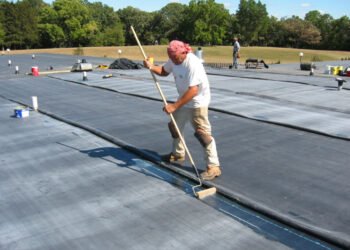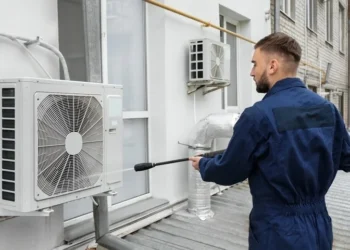Radiators are an essential part of any home’s heating system, providing warmth and comfort during the colder months. Understanding how radiators work and the science behind heat transfer is crucial to ensure the efficiency and effectiveness of your heating system. In this article, we will explore the science of radiators and heat in your home.
How Radiators WorIf the flow rate is too high, the radiator may make noise and waste energy.k
Radiators are designed to transfer heat from a hot surface to the surrounding air. They work by heating water or air, which then circulates through a series of pipes and fins. As the heated water or air passes through the radiator, it gives off heat to the surrounding air, warming the room.
Radiators come in different shapes and sizes, but they all work on the same basic principle of heat transfer. The most common type of radiator is the panel radiator, which is made up of a series of panels with fins attached to the back. The hot water or air circulates through the panels and fins, giving off heat to the surrounding air.
Heat Transfer
Heat transfer is the process by which heat is transferred from one object to another. There are three main types of heat transfer: conduction, convection, and radiation.
- Conductionis the transfer of heat through a material. When a hot object comes into contact with a colder object, heat is transferred from the hot object to the colder object through conduction. This is how heat is transferred from the radiator to the surrounding air.
- Convectionis the transfer of heat through a fluid, such as air or water. When the fluid is heated, it becomes less dense and rises, carrying heat with it. This is how hot air rises from the radiator and circulates throughout the room.
- Radiationis the transfer of heat through electromagnetic waves. This is how the sun heats the earth and how a fire heats a room. Radiators also give off some radiation, but most of the heat is transferred through conduction and convection.
Efficiency of Radiators
The efficiency of a radiator depends on several factors, including the size and shape of the radiator, the temperature of the water or air, and the flow rate of the fluid. A radiator that is too small for the room will not provide enough heat, while a radiator that is too big will waste energy and money.
The temperature of the water or air also affects the efficiency of the radiator. The hotter the water or air, the more heat it will give off to the surrounding air. However, if the water or air is too hot, it can damage the radiator and reduce its lifespan.
The flow rate of the fluid is also important for the efficiency of the radiator. If the flow rate is too low, the radiator will not give off enough heat. If the flow rate is too high, the radiator may make noise and waste energy. Also, consider investing in well-designed radiator covers. These can not only elevate the style of a room but also improve the efficiency of your radiators. Radiator covers can allow heat to circulate more effectively throughout the room, ensuring more even heat distribution and improving overall comfort while reducing heat loss.
Maintenance of Radiators
To ensure the efficiency and effectiveness of your radiators, it is essential to maintain them regularly. This includes bleeding the radiators to remove any trapped air, cleaning the fins to remove dust and debris, and checking the valves and pipes for leaks or damage. Bleeding the radiators involves releasing any trapped air from the system, which can cause the radiator to become less efficient. To bleed a radiator, turn off the heating system and use a radiator key or screwdriver to open the bleed valve on the radiator. Once the air has been released, close the valve and turn the heating system back on.
Cleaning the fins of the radiator is also important to ensure maximum heat transfer. Over time, dust and debris can accumulate on the fins, reducing their effectiveness. To clean the fins, use a soft brush or vacuum cleaner to remove any debris.












